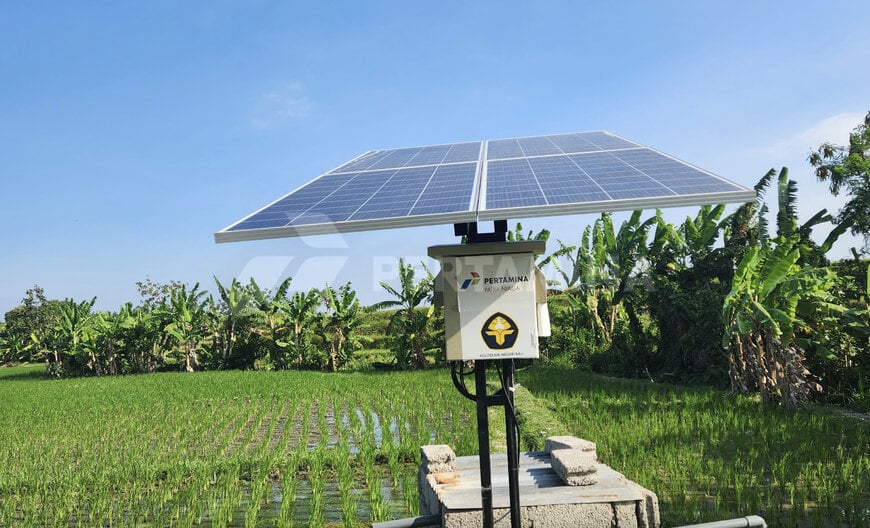www.industry-asia-pacific.com
15
'25
Written on Modified on
Pertamina Develops Energy Transition, Supports Welfare of 408 Farmers in Uma Palak Village
SIUMA uses IoT-based soil moisture sensors connected directly to the farmers' WhatsApp group, allowing real-time irrigation decisions to be made.
pertamina.com

Drought has become a serious threat to Indonesia’s food security. Data from the Meteorology, Climatology, and Geophysics Agency (BMKG) shows that most areas of Indonesia experienced below-normal rainfall during the 2023 dry season. As a result, 27,000 hectares of rice crops were affected by drought, and 2,269 rice fields suffered total crop failure.
"The subak in our village is threatened by water shortages during the dry season. The impact is a decline in rice production, and sometimes even crop failure," said I Made Darayasa, a farmer in Uma Palak Lestari Village in Munduk Uma Palak, Peguyangan Subdistrict, North Denpasar, Bali.
Subak is a traditional Balinese irrigation system that the local communities manage through customary law.
Not remaining idle, the villagers sought a solution. "We partnered with Aviation Fuel Terminal (AFT) Ngurah Rai Pertamina Patra Niaga to learn and apply technology to overcome farming production challenges. Through the Uma Palak Irrigation Energy Supply Management System or SIUMA innovation, developed by the Pertamina team, we successfully improved irrigation on our rice fields," explained I Made Darayasa.
SIUMA uses IoT-based soil moisture sensors connected directly to the farmers' WhatsApp group, allowing real-time irrigation decisions to be made.
In addition, support from a 21 kWp solar power plant and a micro-hydro system has made the irrigation system cost-efficient. The micro-hydro system utilizes non-hazardous waste, such as unused hose reels from AFT Pertamina Ngurah Rai’s aviation fuel distribution trucks.
408 beneficiaries, including 24 female farmers, have directly experienced the benefits of this village transformation. These include access to renewable energy, organic farming training, and increased economic opportunities through tourism and agricultural products.
I Gede Sudi Arcana, Head of Peguyangan Subdistrict, noted that the program had a positive impact. This technological innovation has reduced operational costs by up to IDR 700,000 monthly. DEB Uma Palak has also increased organic rice production 2.3 times, from 5.1 tons/ha to 7.5 tons/ha. Five hectares of organic rice fields are now sustainably managed, generating an annual revenue of IDR 476 million.
He added that residents also use electric tractors to work their fields, allowing them to cut operational costs from IDR 25,000 per are to IDR 15,000 per are.
DEB Uma Palak continues to grow and is now an educational ecotourism area. Equipped with green open spaces, jogging tracks, a café area, and camping grounds, it attracts 72,000 tourist visits yearly, increasing residents' income by IDR 64 million annually.
The DEB program is a tangible manifestation of Pertamina’s commitment to supporting the energy transition and the Sustainable Development Goals (SDGs), particularly SDG 2 (Zero Hunger), SDG 7 (Affordable and Clean Energy), and SDG 13 (Climate Action).
www.pertamina.com

